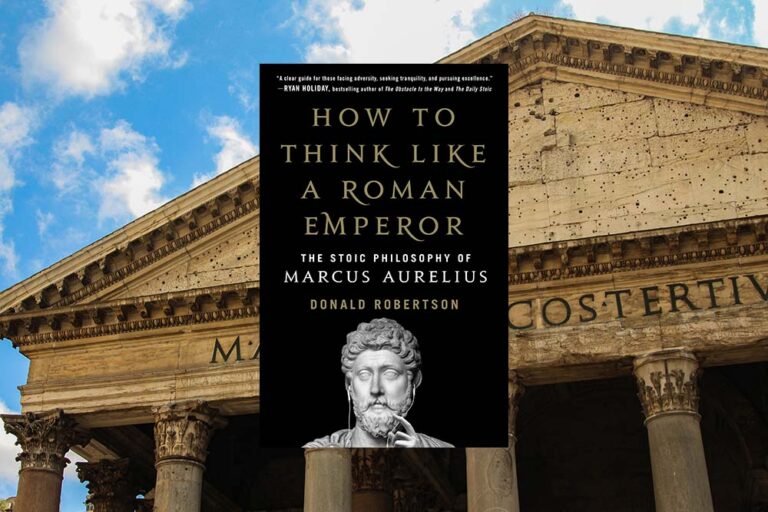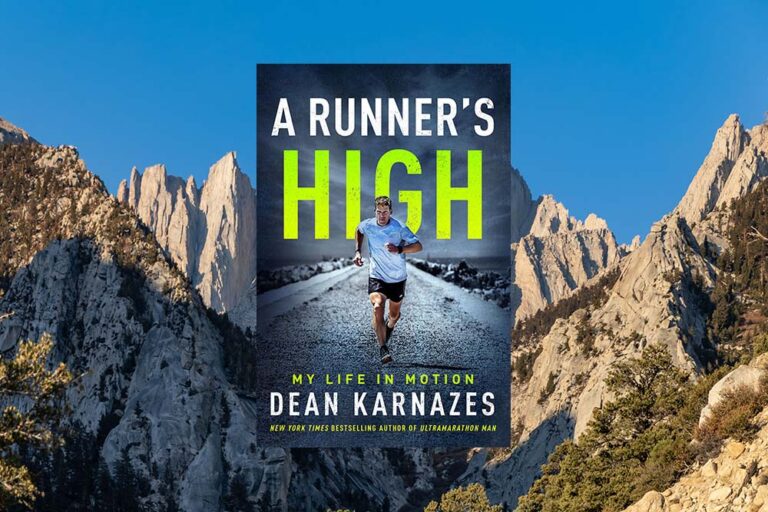#26: Suffering as a Tool for Growth. Lessons From “Can’t Hurt Me” by David Goggins (Part 2)

In the second part of my notes based on David Goggins’s autobiography Can’t Hurt Me: Master Your Mind and Defy the Odds I’ll talk about using suffering as a tool for growth.
Suffering is the key factor that has transformed David from an obese, unhappy man into a tough and accomplished example of personal excellence. Here’s how to approach it to change your life.
(Side note: if you want even more lessons from David, I created a list of the best podcast interviews with David Goggins.)
Forget About Motivation, Seek Pain Instead
Even the best pep talk or self-help hack is nothing but a temporary fix. It won’t rewire your brain. It won’t amplify your voice or uplift your life. Motivation changes exactly nobody. The bad hand that was my life was mine, and mine alone to fix.
So I sought out pain, fell in love with suffering, and eventually transformed myself from the weakest piece of shit on the planet into the hardest man God ever created, or so I tell myself.
The premise of the book is that unlike most self-help titles, it doesn’t promise the reader success if he’s only “motivated” enough. David has learned that motivation wanes quickly and ultimately helps no one. If you’re looking for guaranteed personal transformation, you need to seek pain instead and fall in love with suffering.
If you want to change anything in your life, by default that new thing lies outside of your comfort zone. To get there, it’s inevitable to suffer—physically or mentally. That pain is the price you need to pay to push your limits and expand your life.
For example, let’s say that you want to get into carrying heavy stuff over long distances and start hiking in the mountains. You watch some motivational videos of beautiful wilderness being explored on foot by a popular YouTuber. You’re pumped up—it’s what you want to do as well. Driven by this motivation, you head to the nearest outdoor store and get all the equipment you need.
The next day comes and you head out for your first adventure. Within twenty minutes you’re sweating like a pig, you can barely catch a breath, and your feet and knees hurt. With each step, it gets worse and worse. You decide to grab something to eat and regroup.
A short break helps for a while but within minutes after resuming the hike you feel terrible again. Defeated, you head back to the parking lot. At home, you throw yourself onto your favorite sofa and start playing your favorite video game, snacking on your favorite potato chips.
Poof, that motivation for mountain hiking is now gone and soon to be forgotten.
What happened? You focused on motivation instead of seeking—and welcoming—the pain of trying something new.
Physical and mental discomfort is an inevitable part of hiking. In fact, for many hikers, that pain is what makes their hobby so attractive. They feel most alive when they’re exhausted.
Note that it doesn’t mean that you purposefully seek injuries or that you want to get hurt. Rather, it’s about seeking the positive, productive pain of adaptation.
Pain is inevitable when you’re trying something new because your body (or brain) is trying to adapt to new demands.
New surfers will suffer from rib and shoulder pain. If you see surfing as gliding on perfect waves from the first day, your motivation will disappear within the first session.
New runners will suffer from Achilles, calf, and knee pain. If you see running as a cute little activity that will make you look cool, you’ll stop doing it within one or two runs.
New writers will suffer from self-doubt. If you see writing as a fun, painless way to be creative, you’ll drop it as soon as you realize how hard it is.
New public speakers will suffer from anxiety. If you see public speaking as people listening to every word that you’re saying, you’ll lose the drive when you bomb your first performance.
Unless you’re willing to accept the pain of transformation and even welcome it as a friend, you’ll never change. Which is why rewiring your brain to succeed in life starts with learning the value of voluntary suffering.
Crave Discomfort
From then on, I brainwashed myself into craving discomfort. If it was raining, I would go run. Whenever it started snowing, my mind would say, Get your fucking running shoes on. Sometimes I wussed out and had to deal with it at the Accountability Mirror. But facing that mirror, facing myself, motivated me to fight through uncomfortable experiences, and, as a result, I became tougher. And being tough and resilient helped me meet my goals.
The savage mindset of David comes not only from accepting discomfort but also craving it.
A regular person, when faced with obstacles, would at best complain a little and then try to find a way to deal with them. Not David Goggins. David would WANT to face discomfort because he would know that the more uncomfortable he would get, the tougher he would become. He would be happy to see the obstacles—and the more, the better.
This aspect of his attitude is extremely rare, particularly in today’s world where we always seek the easiest and most pleasant way to achieve our goals. By nature, we want to seek shortcuts and escape from discomfort as soon as possible.
David would deem it a crock of shit. He forged himself precisely because he went the other way. What others ran away from, he ran towards it, seeing it as a unique opportunity to progress by leaps and bounds while others skip the struggle.
When there are obstacles on your way, it’s tempting to quit or seek an easier path. But you’re only doing yourself a disservice by not going out and embracing the suck.
Chase Pain Like It’s Your Job
I know how it feels to be approaching an energetic dead end. I’ve been there too many times to count. I understand the temptation to sell short, but I also know that impulse is driven by your mind’s desire for comfort, and it’s not telling you the truth. It’s your identity trying to find sanctuary, not help you grow. It’s looking for status quo, not reaching for greatness or seeking wholeness. But the software update that you need to shut your governor down is no supersonic download. It takes twenty years to gain twenty years of experience, and the only way to move beyond your 40 percent is to callous your mind, day after day. Which means you’ll have to chase pain like it’s your damn job!
Imagine you’re a boxer, and on your first day in the ring you take one on your chin. It’s gonna hurt like fucking hell, but at year ten of being a boxer, you won’t be stopped by one punch. You’ll be able to absorb twelve rounds of getting beat the fuck down and come back the very next day and fight again. It’s not that the punch has lost power. Your opponents will be even stronger. The change has happened within your brain. You’ve calloused your mind. Over a period of time, your tolerance for mental and physical suffering will have expanded because your software will have learned that you can take a hell of a lot more than one punch, and if you stay with any task that is trying to beat you down, you will reap rewards.
As I wrote in the first part of my notes, many people misunderstand David’s approach and conclude that it’s about extreme suffering done every now and then. In reality, nothing could be further from the truth.
David sees suffering as his job to be done consistently day after day, in a sustainable way. His goal is a lifelong improvement of his tolerance for mental and physical discomfort.
To go past the 40% of your potential, you refuse the governor’s signals over and over again and push a little more beyond your energetic end. When you’re fighting against your mind’s desire for comfort, you’re helping it grow through manageable doses of pain meant to help you adjust. It’s not about continuous extreme self-destruction.
In the boxer example, David talks about the boxer getting hit in the chin on his first day of training. He doesn’t talk about a person new to boxing signing up for an amateur fight and getting knocked out so badly he ends up in the hospital. The boxer trains regularly and slowly adapts to the demands of his discipline.
You don’t wake up one day, do something extremely hard, and can deem yourself a tough motherfucker for the rest of your life. Instead, you become one: through pain and pleasure, ups and downs, and pushing hard and resting.
Chunk It Down
From my vantage point I could see the crest of the hill above and encouraged myself to walk at least that far. If I still wanted to quit after that, I told myself that I would be willing to sign off, and that there is no shame in not finishing the Hurt 100. I said that to myself again and again because that’s how our governor works. It massages your ego even as it stops you short of your goals. But once I got to the top of the climb, the higher ground gave me a new perspective and I saw another place off in the distance and decided to cover that small stretch of mud, rock, and root too—you know, before quitting for good.
Once I got there I was staring down a long descent and even though the footing was troubling, it still looked much easier than going uphill. Without realizing it, I’d gotten to a point where I was able to strategize. On the first climb, I was so dizzy and weak I was swept into a moment of fuck, which clogged my brain. There was no room for strategy. I just wanted to quit, but by moving a little bit further I’d reset my brain. I’d calmed down and realized I could chunk the race down to size, and staying in the game like that gave me hope, and hope is addictive.
When you suffer, minutes and seconds drag on. Your progress until now, even if you’re close to the finish line, becomes less and less of a reason to continue. The more desperate you get, the more difficult it is to find in yourself the willingness to keep going.
To access the last drops of energy and rekindle some hope, try setting the tiniest of goals. Give yourself a sense of accomplishment by breaking your goal into mini stages that are within your sight.
For example, if you’re studying a difficult subject, break it down into the smallest parts possible. Focus on mastering only the tiniest thing instead of worrying about the extensive scope of the topic.
If you’re suffering on a long run, try to see if you can run to the nearest tree or a lamppost and from there, to another one.
If you’re doing a long and tiring stretching session, see if you can hold a pose for thirty seconds more and then take it from there.
Whatever you’re doing, instead of stopping, try to set a tiny goal that you can reach soon. Forward movement, even if it’s slow, will help you stay in the game.
Why Are You Suffering?
I stared down at my legs. I could still see a trail of dried piss and blood stuck to my inner thigh and thought to myself, who in this entire fucked-up world would still be in this fight? Only you, Goggins! You haven’t trained, you don’t know dick about hydration and performance—all you know is you refuse to quit.
Why?
It’s funny, humans tend to hatch our most challenging goals and dreams, the ones that demand our greatest effort yet promise absolutely nothing, when we are tucked into our comfort zones. I was at work when Kostman laid out his challenge for me. I’d just had a warm shower. I was fed and watered. I was comfortable. And looking back, every single time I’ve been inspired to do something difficult, I was in a soft environment, because it all sounds doable when you’re chilling on your fucking couch, with a glass of lemonade or a chocolate shake in your hand. When we’re comfortable we can’t answer those simple questions that are bound to arise in the heat of battle because we don’t even realize they’re coming.
But those answers are very important when you are no longer in your air-conditioned room or under your fluffy blanket. When your body is broken and beaten, when you’re confronted with agonizing pain and staring into the unknown, your mind will spins, and that’s when those questions become toxic. If you aren’t prepared in advance, if you allow your mind to remain undisciplined in an environment of intense suffering (it won’t feel like it, but it is very much a choice you are making), the only answer you are likely to find is the one that will make it stop as fast as possible.
I don’t know.
When we put ourselves through voluntary suffering we can only emerge victorious if we know why we’re doing it. Pushing past your limits often hurts so much that a weak part of your mind will come out screaming to stop, coming up with more and more inventive rationalizations why you need to quit.
I train open water swimming in a lake that’s about 1 km long (0.6 mile). On days when I’m training longer distances, I need to do a couple of “laps” of the lake. After completing 2 km and returning to my starting point, the weak part of my mind likes to come up with suggestions to stop. It doesn’t want to swim the entire length of the lake again for a variety of reasons.
It’s boring.
Cut it short. You’re going to work out your shoulders practicing MMA in the afternoon anyway.
Make it your recovery swim. You’ll push hard next time.
You’re getting cold.
The conditions are too choppy.
As David says, if I had no answer as to why I’m making myself suffer, the only answer I would be able to give would be “I don’t know.” And if you don’t know, why bother?
And that’s for an activity that I love (which doesn’t preclude it from being uncomfortable at times). How likely would you be to endure something that you hate but that you need to do to advance in life?
David emphasizes to contemplate on this before you find yourself in the heat of the battle.
Why do you refuse to quit? Why do you seek discomfort? What does enduring suffering give you? And conversely, what does quitting robs you of?
Callous Your Mind
I remember my very first day in the gym back in Indiana. My palms were soft and quickly got torn up on the bars because they weren’t accustomed to gripping steel. But over time, after thousands of reps, my palms built up a thick callous as protection. The same principle works when it comes to mindset. Until you experience hardships like abuse and bullying, failures and disappointments, your mind will remain soft and exposed. Life experience, especially negative experiences, help callous the mind.
David’s philosophy of callousing your mind is nothing else than what we practice here in the Discomfort Club. It’s doing things that are hard, uncomfortable, scary, or otherwise challenging.
It’s also the same thing that Ancient Stoics recommended to toughen the soul. As Seneca said, “It is precisely in times of immunity from care that the soul should toughen itself beforehand for occasions of greater stress.”
By repeatedly stepping outside your comfort zone you become more comfortable in a wider variety of situations. This makes your mind strong and resilient in contrast to a person who has never experienced hardships. You become a more useful human being who gets things done and you live a more successful life, too.
All kinds of experiences—both caused by voluntary challenges as well as the uninvited ones—can make us stronger as long as we recognize them as such. As Cameron Hanes said, use them as chisels, not crutches.
David transformed his suffering into fuel to turn himself into a globally-renowned inspiration. How could you use your own suffering to change your own life?
Questions to Ponder
1. Are you willing to accept and welcome the pain of change?
2. Do you crave difficulties or merely accept them when they happen but would rather avoid them if possible?
3. Is your tolerance for mental and physical suffering expanding as you age? Or have you let your discomfort “muscle” atrophy?
4. Do you chunk things down when you’re already spent and there’s still a lot of suffering ahead of you?
5. Why are you suffering? What are you saying yes to and no to when you decide to seek pain instead of staying comfortable?
6. How calloused is your mind?
If you want more advice on using suffering as a tool for growth, sign up for a free weekly Discomfort Club newsletter. Enter your email address below:




